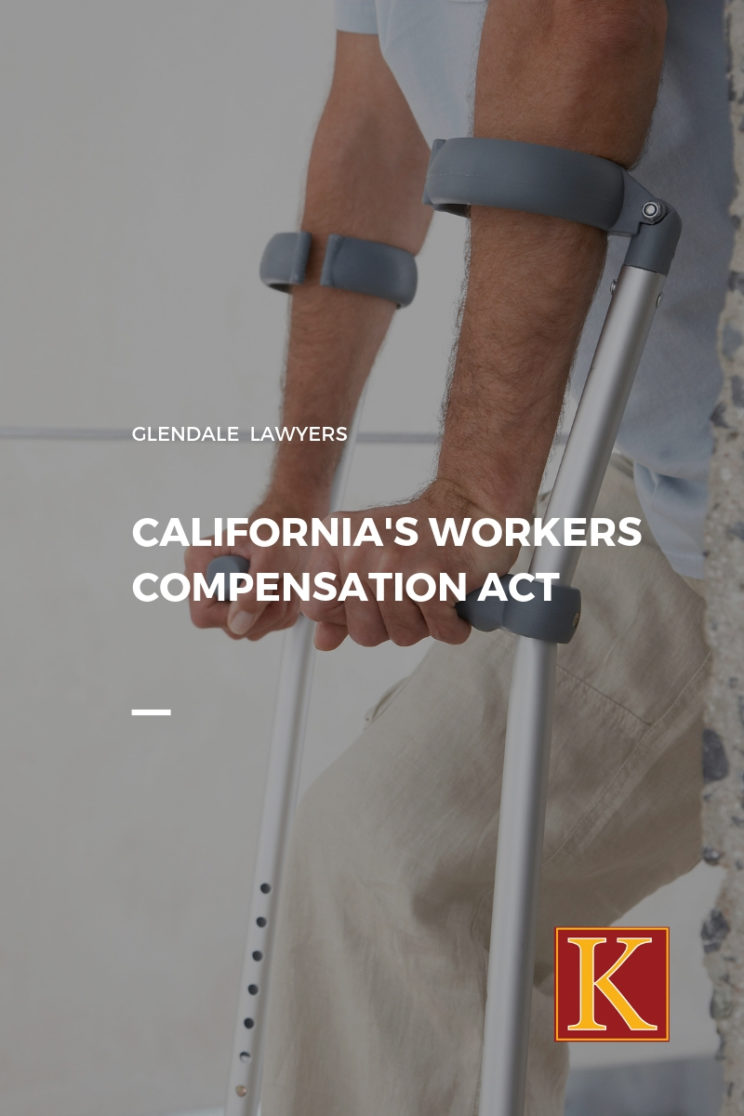All California employers, regardless the number of workers they have, must provide their employees with compensation benefits and pay for compensation insurance. Employers can choose from the State Compensation Insurance Fund (SCIF) or from licensed insurers in the state.
California’s Workers Compensation Act
Under California’s Workers Compensation Act if an employee has suffered an injury because of his job he can be entitled to benefits. If a person is an eligible employee with a work-related illness or injury, the law requires his employer to pay for medical treatment and partial wage replacement while he is recovering. If an employee wants to get workers’ comp benefits in California it’s under his responsibility to file a claim on time.
California Workers Compensation for Work-Related Injuries
In California most common work related injuries are from car or truck accidents, falls, and moving or lifting objects. Almost all injuries related to the job or caused at workplace are eligible for workers’ compensation benefits. The list of injures include:
- Injuries caused by a one-time accident
- Cumulative injuries, which are caused by doing the same motion over and over
- Illnesses arising out the work tasks or the job environment
Situations Where Employee Would Not Be Compensated for Recovery Under California California’s Workers Compensation Act
- The injury was caused during the commission of a felony
- The injury was caused by alcohol intoxication or other substances
- The injury was self-inflicted
- The injury was a reason of a fight started by the injured employee
Process of Filling the Worker’s Compensation Claim in California
Usually the process of filing a workers’ comp claim in California is the following:
- Employee reports about the injury. The report must be in writing and should be signed by the injured employee or a person acting on his behalf.
Labor Code Section 5400 Reporting Employee Injury
According to Labor Code Section 5400 employee must report about the injury to his employer in writing within 30 days of its occurrence to qualify for worker’s compensation benefits. However, according to Labor Code Section 5402 in case the employer obtains information about the injury in some other way (for example from the employee’s supervisor) it is equivalent to written notice. In case the employee failed to report the employer in 30 days he will still be eligible for the recovery unless the delay caused significant negative consequence for the employer.
- Employee files out California State Division of Workers’ Compensation (DWC) form 1 and give it to his employer, who within 1 day provides the claim to workers’ compensation insurance company. The form contains the following information:
- Employees name
- Employees address
- Date and time of the injury
- Address and description of the location where the injury occurred.
- Sustained injury and the body part affected.
The insurance company has 90 days for accepting or denying the claim. In case they don’t’ inform the employee of anything within 90 days then the claim is presumed to be accepted.
California Compensation Claim Denials
The insurance company might deny the claim in case:
- Employee’s injury isn’t work-related
- Employee’s injury is due to another job
- Employee’s doesn’t need medical treatment,
- Employee can return to work
Appealing Workers’ Compensation Denial
After learning that the claim is denied the employee is entitled to see a Qualified Medical Evaluator for getting an additional opinion. This is an impartial doctor who is reviewing workers’ compensation claims. In case after the independent evaluation the employee still disagrees with the employer or insurer about a compensation benefits decision, including the claim denial he can file a Declaration of Readiness to Proceed with the Worker’ Compensation Appeals Board (WCAB) within one year of his injury. The employee must serve this form on the insurance company and include a proof of service form. The Appeals Board will hold a hearing and make a decision on his claim.
California’s Uninsured Employer’s Benefit Trust Fund
If a worker is injured and if the employer was not properly insured about the worker’s injury, California’s Uninsured Employer’s Benefit Trust Fund (UEBTF) will step into the place of the insurance company to pay worker’s compensation insurance benefits. The UEBTF will then attempt to recover the money from the illegally uninsured employer.


Pingback:Commercial Vehicle Accidents In California - KAASS LAW